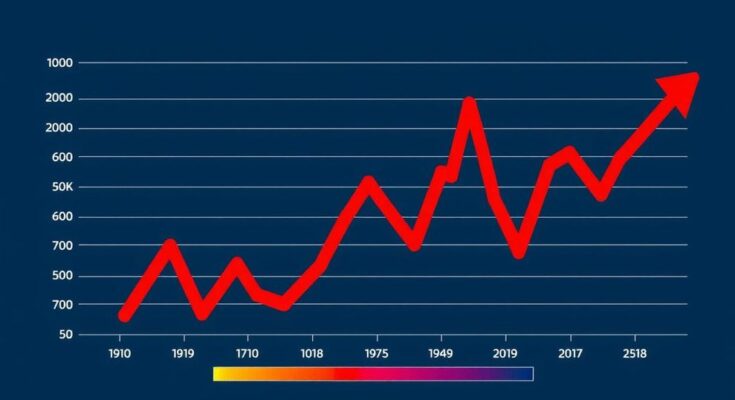Following Donald Trump’s election, stocks for private prison companies surged as investors predict increased profits from stricter immigration policies. Companies such as CoreCivic and Geo Group, which manage detention centers for undocumented migrants, experienced stock gains of 29% and 42%, respectively. Influential voices like Elon Musk amplify concerns over illegal immigration, marking it as pivotal to future electoral outcomes. The success of these private prisons hinges on local compliance with ICE, not solely federal mandates.
The election of President-elect Donald Trump is significantly affecting the stock market, particularly in the private prison sector, as his commitment to stringent immigration policies indicates a potentially prosperous future for companies like CoreCivic and Geo Group. These firms, already profiting from the incarceration rate in the United States, have diversified into operating detention facilities for undocumented migrants under the auspices of U.S. Immigration and Customs Enforcement (ICE). Following Trump’s victory, CoreCivic’s stock soared by 29%, while Geo Group’s increased by an astounding 42%. Investors are optimistic about the financial gains anticipated from the anticipated expansion of the immigration detention system, reminiscent of the Trump administration’s previous strategy which saw a 50% increase in such facilities. Notably, Elon Musk has publicly emphasized the importance of addressing illegal immigration, positing that Democratic policies on the southern border threaten to bolster Democratic voting in crucial states. Musk proclaimed during a conversation with Joe Rogan that if Trump does not win, future elections may be irrevocably altered by policies that could lead to the mass legalization of undocumented immigrants. There are indications that the forthcoming Trump administration will follow through on its promise to enact the “largest deportation in the history of our country,” with Vice President-elect JD Vance suggesting an immediate focus on one million undocumented individuals. However, the extent to which CoreCivic and Geo Group can capitalize on this potential growth remains contingent upon cooperation from local and state authorities with ICE, which is not guaranteed. Despite the Biden administration’s halting of private prison contracts, it maintained an exception for migrant detention centers, underscoring the complex landscape in which these private prison companies operate. As stakeholder attitudes evolve post-election, the future profitability of private prison stocks may still hinge on broader compliance with the immigration directives instituted by the new administration.
The topic revolves around the intersection of political change and its impact on private sector profitability, particularly in the prison industry under new immigration policies. Trump’s election has revived and expanded the conversation around illegal immigration and its management in America, which has historically benefited private prison companies due to increased detention rates. The implications of investing in these companies are presently heightened due to their historical profitability during times of stringent immigration enforcement, particularly under Trump’s previous presidency where migrant detention peaked significantly. Furthermore, the role of influential figures like Elon Musk introduces a layer of social media impact on political narratives regarding immigration, as his endorsement of Trump ties economic and electoral implications into the future of U.S. policies. The responses of local governments in alignment or resistance to federal immigration mandates under the incoming administration also potentially shape the operational landscape for private prison companies.
In summary, the election of Donald Trump is anticipated to significantly bolster the stocks of private prison companies such as CoreCivic and Geo Group due to projected increases in immigration enforcement and detention. Investors are optimistic about the strong financial performance of these firms in light of potential mass deportations, underscoring an ongoing trend of private sector gains associated with public policy decisions on immigration. However, the overall efficacy and profitability of these companies remain susceptible to the cooperative dynamics between federal directives and local governance.
Original Source: fortune.com




